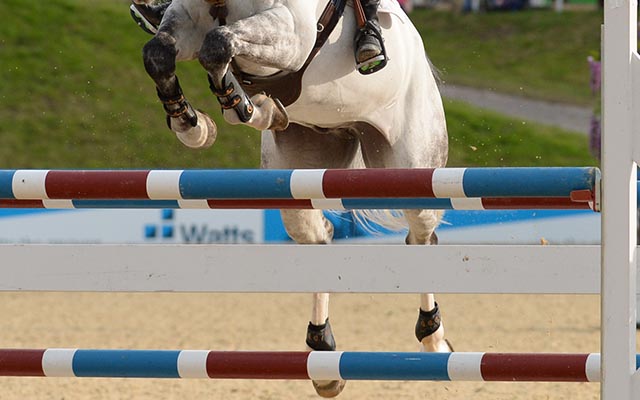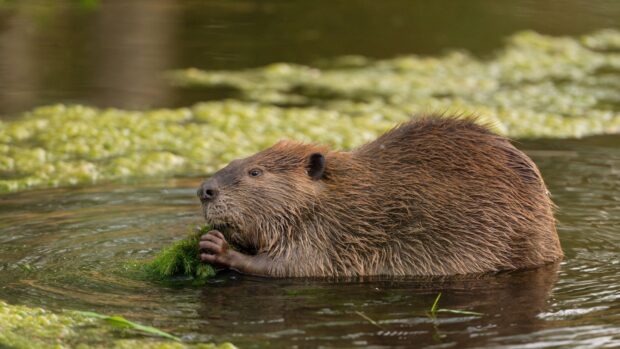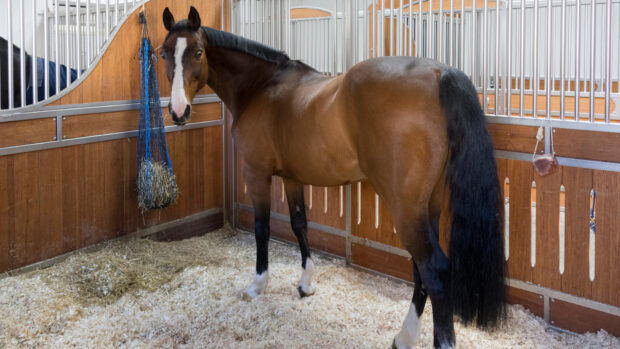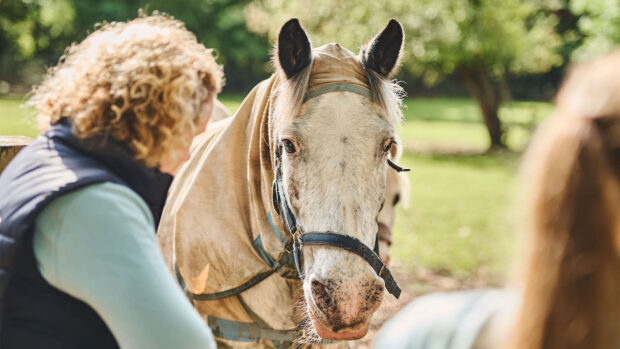MANY riders are always seeking the “true connection” and full mutual understanding with their horses – but could this be doing more harm than good?
Equine anthropologist Rosie Jones McVey gave a talk at a webinar titled “Is true connection always a little out of reach?” organised by Intelligent Horsemanship.
Dr Jones McVey, whose work focuses on human-animal relationships, ethics and morality, and mental health, was discussing her recent research on British equestrians’ stances “toward knowing and being known by (animal) others”, which was published in Ethos: Journal for Psychological Anthropology.
She explained that her research is based on ethnography; spending a lot of time with and getting to know a smaller number of people than in some studies with more subjects but less time spent.
“This is specifically about mindsets in human-animal relationships,” she said. “What do we think about being known by our horses, and knowing them?”
Dr Jones McVey said in the people she worked with, the idea of being known by their horses mattered a great deal, “particularly important was the idea of authenticity, of being known as who we really are”.
“People felt it was important their horses know them in a way other people don’t,” she said. “That their horses really recognised and noticed them.”
She cited riders who said horses do not lie, and that the comparison with human-human relationships was often raised.
“There’s value to the feeling that horses have authenticity, as they come from the natural world, and don’t have human language so can’t represent or misrepresent themselves,” she said.
She added that the riders felt what they had with horses was “true”, as the animals would not put up with things that were “not right”, which gave them a feeling of accomplishment, and that consumerism and social media “are part of the context in which having a relationship with a horse who knows what you are starts to carry real value”.
“We pay thousands and put all this work into keeping this creature, and one reason is so we feel seen,” she said. “That’s quite an interesting state of affairs.”
Dr Jones McVey said there is a gender aspect; not having to feel judged matters to women, she had found, as does finding a space where “you count, other than societal roles of mother or wife”.
She added that of course the horse world is not free of negative judgements, but women told her it was a relief to be with an animal who noticed them as people, rather than judged them as women.
In terms of knowing horses, Dr Jones McVey had uncovered high hopes of developing “feel”.
“British horse people have high standards for understanding the minds of their horses, higher than they feel they can achieve,” she said. “They’re looking for a way of feeling completely, fundamentally and intimately connected with their horses.”
She said the riders were always seeking true “connection” with their horses; a harmonious, cooperative relationship and way of going, something “non-horse people find absolutely amazing”.
She explained that much of people’s stress around not riding well is connected to this idea, and that “a lot of riding time is trying to feel for a reality that may be just beyond our grasp”.
“What we want is quite extreme cooperation. It’s become quite naturalised in the horse world that horses were put here to fulfil this mission of making us feel connected, which is potentially harmful depending on how you do it.”
Dr Jones McVey said as people seek the connection, they become more aware of others “doing it wrong”, citing “hot” debates on issues such as rollkur, which can mean riders feeling “vulnerable” and concerned they are riding in a way that might be harmful to the horse.
“What becomes of horses in a world where owners are so obsessed with true connection?” she asked. “There are lots of good things about this state of caring so much about knowing and being known by your horse; we’re extremely attentive to their point of view and comfort, but I think the ‘horse knowing the real you’ could be problematic when people feel rejected by their horses, if you see the horse’s reaction as reaction to his knowledge of you as a real person.”
She added that this seeking for connection can mean riders not feeling good enough, or not welcome.
“The highly critical environment in the horse world can be very difficult for people to navigate,” she said. “Overall, it’s open for debate about whether the idea of true connection is doing more harm than good. I think it’s good to keep other ways of evaluating horsemanship.”
You might also be interested in:

‘It only takes one idiot’: warm-up incident sparks plea for action
'It’s only a matter of time before I witness a serious accident in a collecting ring as it’s a dangerous

What is ‘connection’ in dressage? Christoph Hess explains…

Subscribe to Horse & Hound magazine today – and enjoy unlimited website access all year round
Horse & Hound magazine, out every Thursday, is packed with all the latest news and reports, as well as interviews, specials, nostalgia, vet and training advice. Find how you can enjoy the magazine delivered to your door every week, plus options to upgrade your subscription to access our online service that brings you breaking news and reports as well as other benefits.




